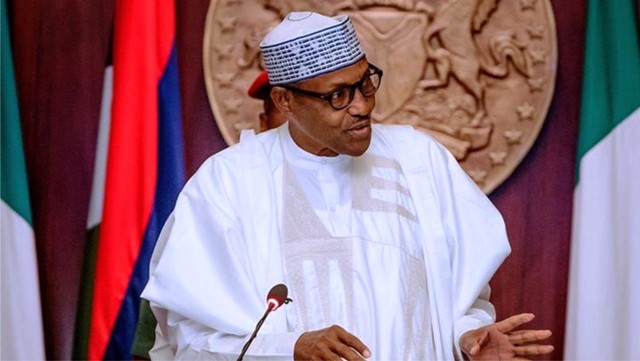Editorial
Ending Needless Medical Tourism

Recently, President Muhammadu Buhari was reported to have said that the failure of government to address the various challenges in Nigeria’s health sector is responsible for the increase in medical tourism in which the nation loses over N400 billion annually.
According to the report, Buhari disclosed this during the inauguration of Senior Executive Course participants at the National Institute for Policy and Strategic Studies (NIPSS), Kuru, near Jos in Plateau State.
Represented by the state governor, Barrister Simon Lalong, the president said that despite the strong commitment being demonstrated by the Federal Government to revitalise the nation’s health sector, the sector continues to be bedeviled by low response to public health emergencies, inability to combat outbreak of deadly diseases and mass migration of medical doctors out of the country.
Sadly enough, the World Health Organisation (WHO) said that Nigeria is currently rated 187 out of 190 countries in the health index. We must also add that the poor state of health care delivery and the upsurge in the emigration of highly skilled health professionals has created room for the ever increasing search for medical treatments abroad.
This case is particularly true for ailments like cancer, kidney, liver, heart, brain, cosmetic and orthopaedic surgeries. There are also examples of celebrities and other wealthy Nigerians who, for sake of confidentiality, seek offshore medical therapy for afflictions that are easily curable within the country. Some even fly their pregnant wives abroad for delivery merely to qualify their offsprings for automatic foreign citizenship.
With an estimated population of over 180 billion (seventh largest in the world), Nigeria has remained a steady source of patients and revenue for some of the highly renowned medical centres across the world. Countries most frequently visited include the United States, United Kingdom, Germany, France, Canada, India, Saudi Arabia and South Africa, among others.
There was even a report of an envoy from a South East Asian country who recently complained to the Federal Government that his country was not getting enough medical tourists from Nigeria. Surely, the latter’s predicament is as bad as that. Every nation now plots to benefit from Nigerians’ extreme extravagance, especially in medical tourism.
Given the number of teaching hospitals, federal medical centres and accredited public and private specialist hospitals scattered across the country, it is expected that Nigeria would attract a respectable ranking among its African peers, at the very least. But this is certainly not for a country whose public hospitals are mainly ill-equipped, grossly underfunded and replete with fake and substandard pharmaceutical products.
We believe that Nigeria has not proved to be a favourable place for the practice of modern medicine, or any other standard specialty for that matter. What with the incessant strikes by doctors and paramedical staff over poor remunerations and welfare which disrupt the learning and practice of the profession.
Doctors have become easy targets for kidnappers in the country. In fact, the menace which grew to assume a seasonal pattern in some states is now getting more frequent with the deteriorating security situation across the land.
As long as this situation remains, doctors and other health professionals whose services are highly sought after elsewhere around the globe would always be tempted to migrate. The same goes for those wealthy Nigerians who can afford the cost of foreign medical travels.
To stem the trend, therefore, government needs to urgently expand and upgrade facilities at the nation’s already existing medical centres, especially the specialist hospitals, while also encouraging foreign direct investment in the health sector. Increased budgetary allocation is necessary to guarantee better funding of the sector.
Restriction of foreign exchange to only medical problems for which there are no remedies within the country can serve to check needless medical tourism. In this case, there has to be proof that reputable internal avenues had already been explored, possibly with verifiable referrals, before diplomatic travel permits and forex approvals can be granted.
Government should also endeavour to improve the welfare of medical personnel, especially those in its employ. Agreements reached through collective bargaining with union leaders must be promptly implemented to avoid the incessant strikes which now characterise the sector.
Above all, government should significantly step up its fight against insecurity. A society where people can feel safe to live and work without fear of cultists, kidnappers, terrorists, hired assassins, armed robbers and trigger-happy policemen can hardly provoke mass emigration of some of its highly skilled workforce. Instead, such society will attract more foreign investors and also encourage the return of its diaspora professionals.
Editorial
Beginning A New Dawn At RSNC

Editorial
Sustaining OBALGA’s Ban On Street Trading

Editorial
AFCON ’25: Bravo, Super Eagles, But…

-

 Sports5 days ago
Sports5 days ago2026 WC: Nigeria, DR Congo Awaits FIFA Verdict Today
-
Politics5 days ago
ADC, PDP, LP Missing As INEC Set For By- Elections In Rivers
-

 Environment5 days ago
Environment5 days agoOxfam, partners celebrate 5 years of climate governance programmes in Nigeria
-
Politics5 days ago
FG’s Economic Policies Not Working – APC Chieftain
-

 News4 days ago
News4 days agoVictory Over Insurgency Certain, Tinubu Assures
-

 Politics5 days ago
Politics5 days ago2027: Diri Unveils RHA LG Coordinators, APC Congress Panel
-

 Politics5 days ago
Politics5 days agoReps To Meet,’Morrow Over INEC’s 2027 Election Timetable
-

 Politics5 days ago
Politics5 days agoGroup Continues Push For Real Time Election Results Transmission

